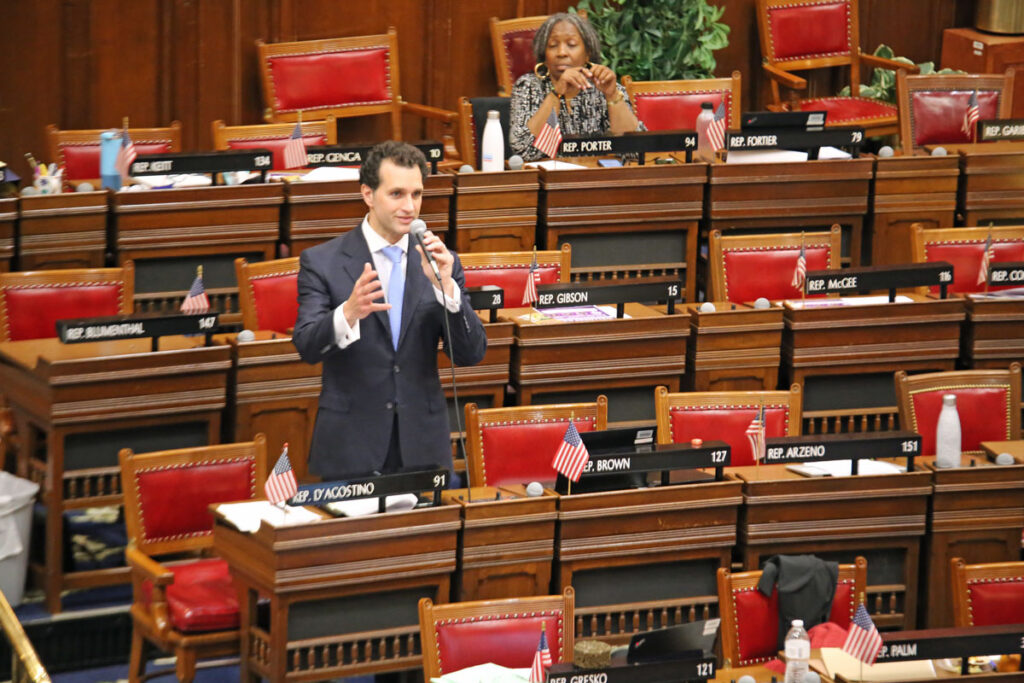HARTFORD, CT – The House late Tuesday approved a sweeping bill that will restrict sale of hemp products, including beverages containing the main psychoactive ingredient of the cannabis plant.
The legislation, House Bill 5150, was passed on a 130-16 vote with five lawmakers not voting or absent and will head to the Senate.
Possession of cannabis for recreational use has been legal since 2021. But the legislature didn’t intend for the flood of hemp products that have been introduced in the state without safeguards on their safety, said Rep. Mike D’Agostino, an architect of the bill.
“This bill addresses that and seeks to constrain that,” D’Agostino said.
Those products – including THC-infused beverages – would be limited in terms of where they could be sold and to whom, prohibiting sale of some products to anyone under 21.
The legislation redefines and broadens the definition of a “high-THC hemp product,” which is more highly regulated, and expands so-called “disproportionately impacted area,” those parts of the state deemed to have been disproportionately affected by criminal cannabis laws and from where applicants for licenses to sell recreational marijuana were given priority.
The bill establishes a new category of THC “which it classifies as an ‘infused beverage’ and requires it to meet many of the requirements for manufacturers of hemp products,” according to the Office of Legislative Research.
THC is delta-9-tetrahydrocannabinol, the main psychoactive ingredient in the cannabis plant. The bill seeks to lower the amount of THC for a product to be considered a high-THC hemp product and removes the differing thresholds depending on the type of product, setting a uniform threshold. An amendment raised the limit to one milligram per serving from 0.5 milligrams, which had been criticized by manufacturers and retailers.
High-THC hemp products can only be sold in Connecticut by licensed dispensaries, cannabis retailers, or hybrid retailers. The bill requires it to be sold in establishments that only sell other hemp products, taking them out of grocery stores, convenience stores, and drug stores.
The social equity aspects of recreational pot laws were critical to the legislation being passed and has become an element of debate related to the bill.
Proposed changes would allow certain social equity cultivator applicants to partner with hemp producers to receive a license that allows cultivation outside a disproportionately impacted area. It would also expand what is considered a disproportionately impacted area to include state tribal reservations and other land owned by the tribes.
Rep. Larry Butler, D-Waterbury, said he was pleased with the changes to the social equity aspects because it kept the priority within boundaries of cities most negatively affected by drug enforcement.
Republicans said the bill was a step toward regulating products that are dangerous to state residents.
“It’s already legal,” said Rep. David Rutigliano, R-Trumbull, “we’’’re trying to regulate it in a way that makes it safer.”
H/T: ctnewsjunkie.com



